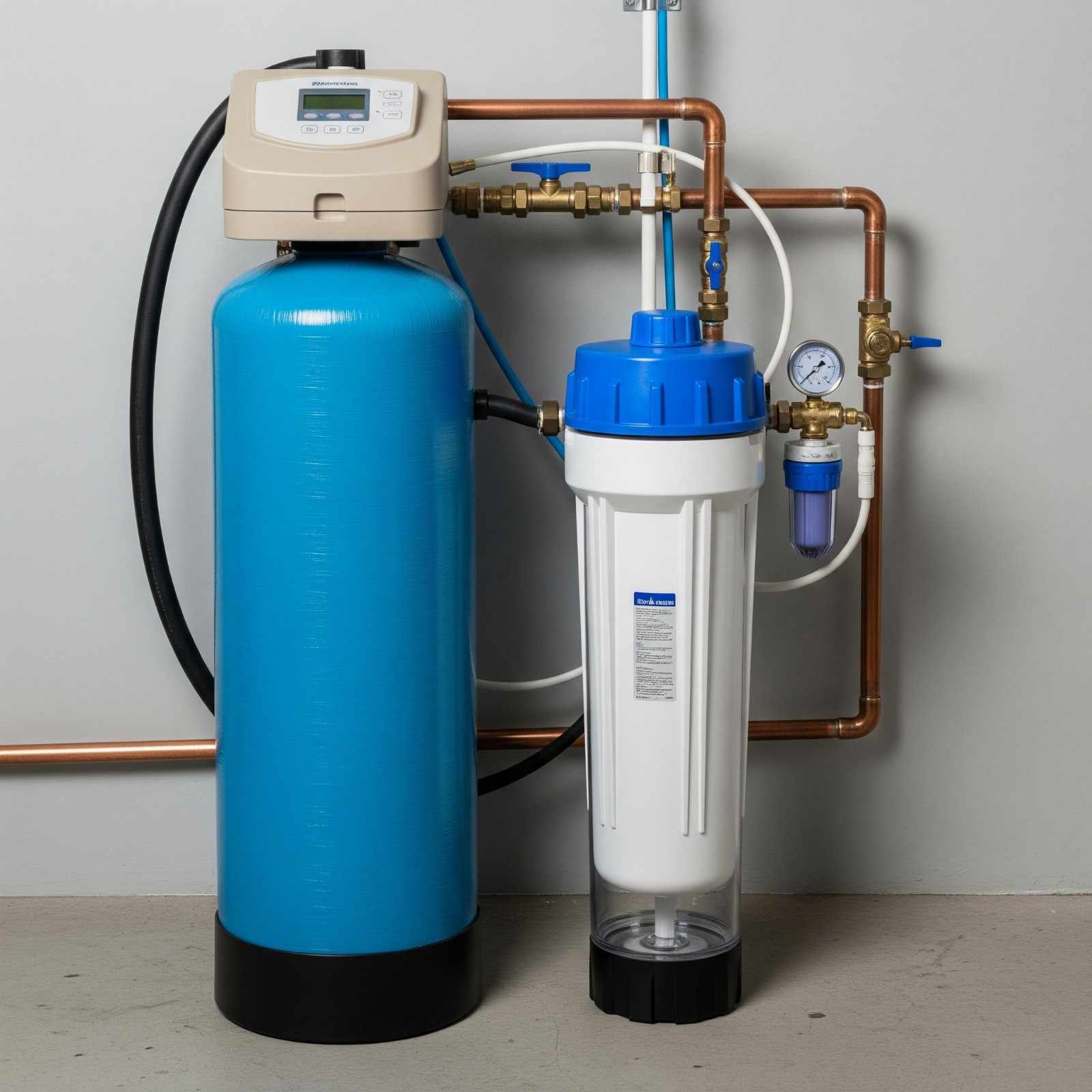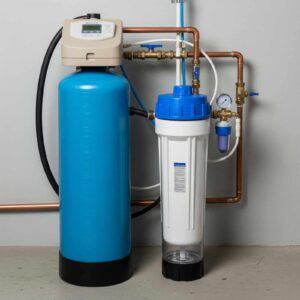When it comes to improving your home’s water quality, two common solutions often come up: water softeners and water filters. While the terms are sometimes used interchangeably, they are not the same thing—and choosing the wrong system can mean you’re not actually solving your water problem.
At DTEC Mechanical, we help homeowners select and install the right water treatment systems based on their specific needs. Here’s a clear breakdown of how water softeners and water filters work, what issues they address, and how to decide which one is right for your home.
Understanding the Basics
Water Softener – Designed specifically to deal with “hard water,” which is water high in calcium and magnesium minerals. Hard water isn’t harmful to your health, but it can damage plumbing, reduce appliance efficiency, and leave spots or residue on dishes and fixtures.
Water Filter – A broad term for systems that remove impurities from water. These can target sediment, chlorine, bacteria, heavy metals, and other contaminants. The purpose is to improve the water’s taste, smell, and safety.
What a Water Softener Does
A water softener uses a process called ion exchange to replace calcium and magnesium ions in your water with sodium or potassium ions. This change dramatically reduces scale buildup and makes your water feel “softer.”
Signs You Might Need a Water Softener:
- Soap and shampoo don’t lather well
- White spots on dishes and glassware
- Chalky buildup on faucets and showerheads
- Reduced water pressure from mineral buildup in pipes
- Laundry feels rough or dingy after washing
- Appliances like dishwashers and water heaters wear out faster
Benefits of a Water Softener:
- Extends the life of plumbing and appliances
- Reduces soap and detergent use
- Prevents scale buildup on fixtures
- Leaves skin and hair feeling softer after showers
What a Water Filter Does
A water filter removes contaminants and impurities that can affect taste, odor, and safety. Filters can target:
- Sediment – sand, rust, dirt
- Chlorine & Chemicals – for better taste and smell
- Bacteria & Viruses – for safe drinking water
- Heavy Metals – like lead, mercury, and arsenic
There are different types of water filtration systems, such as:
- Carbon Filters – remove chlorine and improve taste/odor
- Reverse Osmosis (RO) Systems – remove a wide range of dissolved solids and contaminants
- UV Filters – neutralize bacteria and viruses
- Whole-House Filters – treat all water entering your home
Signs You Might Need a Water Filter:
- Bad taste or odor in your tap water
- Cloudy water or visible particles
- Concerns about bacteria or heavy metal contamination
- Discoloration in water from old pipes
- You want safer, cleaner water for drinking and cooking
The Key Difference
The main distinction is what problem each system solves:
- Water Softener – Deals with hardness minerals only
- Water Filter – Deals with contaminants (sediment, chemicals, bacteria, etc.)
In other words, a softener doesn’t make water safer to drink—it just prevents mineral buildup. A filter improves water quality for drinking and cooking, but may not address hard water scale unless it’s combined with a softening component.
Do You Need One or Both?
In many cases, homeowners benefit from both systems working together. For example:
- If you have hard water and your tap water tastes bad or contains sediment, you may need a water softener and a filtration system.
- If your water is already soft but has odor, discoloration, or safety concerns, a filter is the priority.
- If you’re on a private well, you might need both—softeners for mineral content and filters for bacteria or sediment.
A professional water test is the best way to determine exactly what’s in your water and which system will address it.
Professional Installation Matters
While there are DIY options for small-scale filters, installing a whole-house water softener or filtration system is best left to a professional. Proper sizing, placement, and setup ensure the system works efficiently and lasts for years. At DTEC Mechanical, we assess your water quality, recommend the right system, and install it to meet manufacturer and plumbing standards.
The DTEC Mechanical Advantage
When you choose DTEC Mechanical for your water treatment needs, you get:
- Comprehensive Water Testing – so you know exactly what you’re dealing with
- Tailored Solutions – systems matched to your home’s water issues
- Expert Installation – ensuring peak efficiency and long lifespan
- Ongoing Support – maintenance and service to keep your system running smoothly
Final Thoughts
The choice between a water softener and a water filter comes down to the specific problems in your water. Hard water? A softener is the answer. Contaminants or bad taste? You need a filter. Both issues? You may benefit from a combined solution.
At DTEC Mechanical, our goal is to give you clean, safe, and comfortable water in every faucet of your home. Contact us today for a water quality test and expert advice on the best system for your needs.





